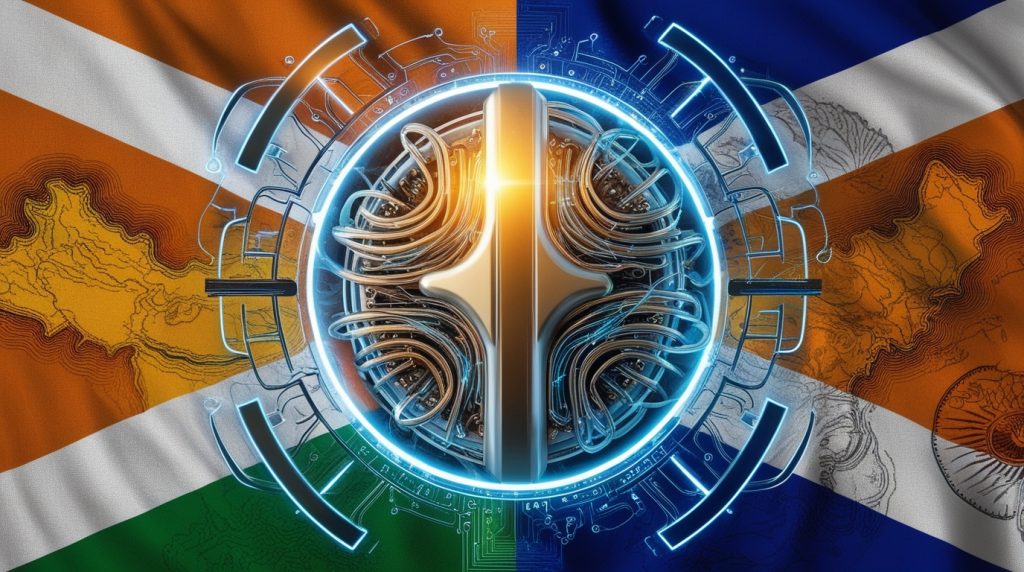In a significant development for global artificial intelligence (AI) governance, India has garnered substantial international support for its initiative to position the Global Partnership on Artificial Intelligence (GPAI) as the preeminent authority on AI regulation worldwide. This ambitious move, spearheaded by India during its current chairmanship of GPAI, has received backing from major nations including the United States, France, Canada, the United Kingdom, Japan, South Korea, Brazil, and Argentina.
The Push for GPAI Leadership
India’s efforts to strengthen GPAI’s role in global AI governance reflect its commitment to responsible AI development and use. By advocating for a more inclusive membership, particularly from the Global South, India aims to enhance GPAI’s influence in shaping global AI policies. This strategic vision aligns with India’s goal of creating a more participatory and representative structure for AI governance on the world stage.
Union Electronics and Information Technology Minister Ashwini Vaishnaw has been at the forefront of negotiations with GPAI’s 29 member countries. These discussions have focused on establishing AI regulations, fostering collaboration across governments, and defining common standards and regulatory frameworks. The negotiations also aim to address the proper use of AI, establish necessary guardrails, and determine how the technology should be treated moving forward.

Expansion Plans and Inclusivity
A key aspect of India’s proposal is the significant expansion of GPAI membership. The organization, which started with 15 member nations and has since grown to 29, is now poised for further growth. India’s plan seeks to increase membership to 44 countries by early next year, with an ambitious target of 65 countries by February. This expansion is designed to address the current dominance of European Union nations within GPAI and increase representation from developing countries, particularly those in the Global South.
The Ministry of Electronics and Information Technology (MeitY) has been engaged in intense negotiations over the past six months, focusing on including OECD nations in GPAI while also increasing the Global South’s partnership in AI regulation. This push for inclusivity is central to India’s vision for a more representative global AI governance structure.
Consolidating Global AI Efforts
India’s initiative aims to consolidate various AI-related bodies under the GPAI umbrella, creating a central and more robust organization. This consolidation is intended to streamline regulations and avoid duplication of efforts across different international bodies dealing with AI governance. By unifying these efforts, GPAI could become a more effective and influential force in shaping global AI policies.
The New Delhi Resolution and Future Directions
In December, the 29 GPAI member nations unanimously adopted the New Delhi resolution, which committed to positioning GPAI at the forefront of shaping AI’s future. This resolution emphasized innovation and collaborative AI applications in sectors such as healthcare and agriculture. It also underscored GPAI’s commitment to leading global discussions on AI governance, ensuring the technology remains safe and trusted.
The adoption of this resolution marked a pivotal moment in GPAI’s evolution, setting the stage for its expanded role in global AI governance. As discussions progress and agreements solidify, GPAI is poised to navigate the complexities of AI regulation in the digital age, fostering global collaboration and ensuring responsible AI development.
International Support and Implications
The support from major nations for India’s initiative signifies a growing consensus on the need for a unified approach to AI governance. This coalition, expected to formalize its agreement by July 3, marks a crucial step towards establishing a comprehensive global framework for AI regulation.
The backing of countries like the US, France, and Canada lends significant credibility to India’s efforts and enhances GPAI’s potential to become the leading global authority on AI matters. This international support also reflects a recognition of the need for more diverse representation in shaping AI policies, particularly from emerging economies and the Global South.
Challenges and Opportunities
While India’s initiative has gained substantial support, it also faces challenges. Balancing the interests of diverse nations, particularly between developed and developing countries, will be crucial for GPAI’s success. Additionally, the rapid pace of AI development may require flexible and adaptive governance structures that can keep up with technological advancements.
However, the opportunities presented by this initiative are significant. A more inclusive and representative GPAI could lead to AI policies that better address global concerns and needs. It could also foster greater collaboration in AI research and development, potentially accelerating innovations that benefit humanity as a whole.
Looking Ahead
As GPAI moves towards becoming the apex authority for AI regulation, its expanded role could have far-reaching implications for the future of AI development and deployment worldwide. The organization is set to lead global conversations on crucial aspects of AI governance, including ethical considerations, safety measures, and the promotion of AI for social good.
India’s proactive stance in advocating for inclusive and comprehensive AI governance through GPAI reflects its strategic vision for global technological leadership. As discussions progress and agreements solidify, GPAI stands poised to play a pivotal role in shaping the future of AI governance and fostering global collaboration.

The success of this initiative could mark a new era in global technology governance, with more diverse voices contributing to the development of AI policies that impact the entire world. As AI continues to transform various sectors of society, the importance of a robust, inclusive, and effective global governance structure cannot be overstated.
India’s bid to elevate GPAI’s role in global AI regulation represents a significant shift in the landscape of international technology governance. With strong support from major nations and a commitment to inclusivity, this initiative has the potential to reshape how the world approaches AI development and regulation in the years to come.
Copyright©dhaka.ai
tags: Artificial Intelligence, Ai, Dhaka Ai, Ai In Bangladesh, Ai In Dhaka, GPAI, Future of AI, Artificial Intelligence in Bangladesh



